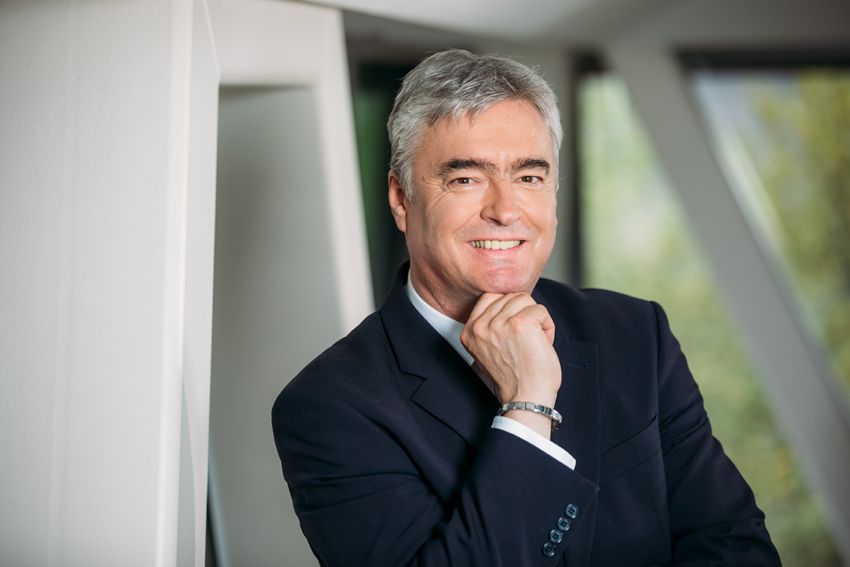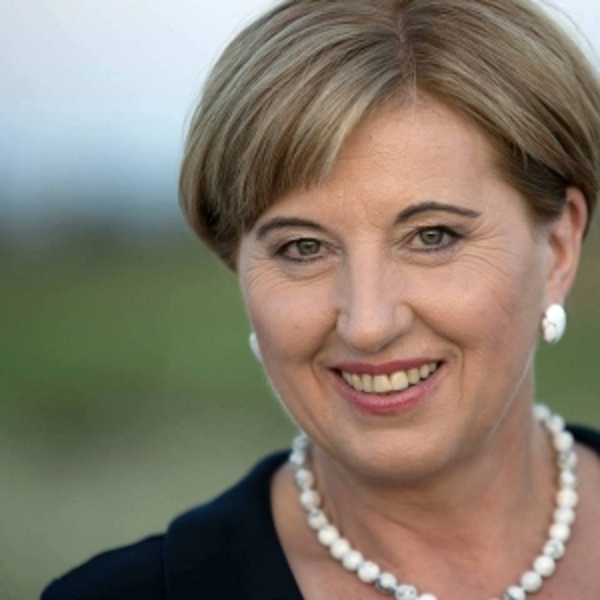Milan Zver says EU should do more to fight terrorism
Milan Zver, turning 57 the day before the election, has won his third term in the European Parliament as the lead candidate on the joint slate of the opposition Democrats (SDS) and non-parliamentary People's Party (SLS). The head of the Slovenian EPP delegation has been a member of the EU parliament's committee for culture and education and a member of the delegation for relations with the US in 2014-2019. He is particularly happy that as the rapporteur for Erasmus+ he has managed to increase funds for the EU's programme for education, youth and sport to EUR 45 billion. He is also proud that one of the European Parliament halls was named after Jože Pučnik (1932-2003), a central figure of Slovenia's independence, to whom Zver served as an advisor in the early 1990s when Pučnik was a deputy prime minister. Since he entered politics in the early 1990s he has become one of the most prominent SDS politicians of the past 15 years. An SDS vice-president, Zver, a holder of a PhD in sociology, was elected MP in 2004, but left parliament shortly after to serve as education minister. He was elected to the EU parliament for the first time in 2009. He has written several books, including one on the SDS's history, which was published under the auspices of the EPP in English in 2009. Zver is married to historian Andreja Valič Zver and has two daughters from a previous marriage.

sds.si
STA, 27 May 2019 - In the new term, the re-elected MEP Milan Zver of the Democrats (SDS) will continue with his work in the security and defence policy, while also focusing on education. He has told the STA that the agenda in the European Parliament will also include fight against terrorism, where he believes the EU should make a step forward.
Zver, 57, expects that security issues and illegal migration will remain high on the agenda in the next five-year term of the European Parliament. He sees cybersecurity and the fight against terrorism as the most important points.
He believes that there is a need for a common EU policy in the field of security, either in the form of common armed forces or a common security and intelligence service.
"It is not enough any more that autonomous intelligence services cooperate and coordinate their work. We should make a step forward if we want to be more effective in fighting terrorism and reduce security risks in the EU generally."
Zver is currently a member of the Special Committee on Terrorism, and the other fields he is the most familiar with are youth policy, culture, education and sport, in which he has also been active as a member of the Committee on Culture and Education.
He expects to continue with the Erasmus+ project as "one of the most successful stories in the EU", which has been "sold very poorly" in the political campaign.
Zver also expects that he will lead the national delegation in the European People's Party (EPP), which he labelled as responsible work, especially at the beginning, when new bodies are being established.
Commenting on the emerging social union, he said that "some common standards need to be established as soon as possible so that the social and development differences between the east and west are reduced".
On the other hand, there are fields which Brussels could transfer to member states and give them more powers and independence. "Common agricultural policy should not necessarily be a completely regulated system."
Zver also commented on the situation in which the EU has found itself after the election of British MEPs, who are mainly Eurosceptics. "This is a big problem for the European Union, coming right at the time when it needs to get stabilised."
If the British went to another Brexit referendum, the result could perhaps be different, but the result of the EU election shows that the "Eurosceptic reflex in the United Kingdom is still very strong".
According to Zver, Brexit has become a second-rate topic in the UK, as the British "care more about which party will win a majority in the early election".
Ljudmilla Novak to work for benefit of Slovenia and European integration
Ljudmilla Novak, 59, is returning to the European Parliament after she served as MEP in 2004-2009 together with Lojze Peterle, who today failed to get re-elected for what would be his fourth term. A graduate of Slovenian and German, Novak abandoned her teaching career to enter politics in 2000 by joining the NSi's predecessor, the Slovenian Christian Democrats (SDK), and being elected Moravče mayor in 2001. When the NSi failed to make it to parliament in 2008, she replaced Andrej Bajuk at the helm of the party, where she stayed until resigning in January 2018 to give way to younger-generation Matej Tonin. It was rumoured she stepped down in exchange for being placed high on the slate for the EU election, which she has denied on several occasions. Novak took the NSi to the general election in 2011 and to the surprise of many, the party managed to return to parliament. Given that no party had managed to make it back to parliament before, this is considered her major achievements. In the second Janez Janša government (2012-2013), Novak served as minister for Slovenians abroad, but later distanced herself from the Democrats (SDS), chiefly due to Janša's ill-disposed policies. Novak, currently an MP, is seen as a moderate conservative willing to engage in dialogue. She is married and has three children.

STA, 27 May 2019 - Ljudmila Novak, who is returning to the European Parliament after a ten-year hiatus to join the ranks of the European People's Party (EPP) as the sole MEP for New Slovenia (NSi), would like to focus on culture and education in her new term.
Talking to the STA about her plans and commitments in the European Parliament, Novak pledged to dedicate her "heart to work for the benefit of Slovenia and integration in Europe".
The first topics she will take up as MEP would depend on the agenda, she said, while noting that in her first term as MEP between 2004 and 2009, she spoke out when something went wrong with respect to Slovenia's borders, minorities and similar issues.
In the past, she was active in the fields of culture and education, the fields she would also like to focus on in her second term in the European Parliament. However, since four of the eight Slovenian MEPs are EPP members "we will need to agree yet who represents which field".
The other three Slovenian MEPs from the EPP ranks - Milan Zver, Franc Bogovič and Romana Tomc - have served as MEPs this term so they will probably want to continue their work in the field they committed themselves to, Novak said. It will all be a matter of agreement. "I'll see what I get to choose from."
The 59-year-old former NSi leader says she is aware of the challenges of reconciling her work as MEP, her family life and her political activity in Slovenia. She did note though that MEPs tended to return home on a weekly basis because they needed to keep in touch with the Slovenian citizens.
All the articles in this series are here







